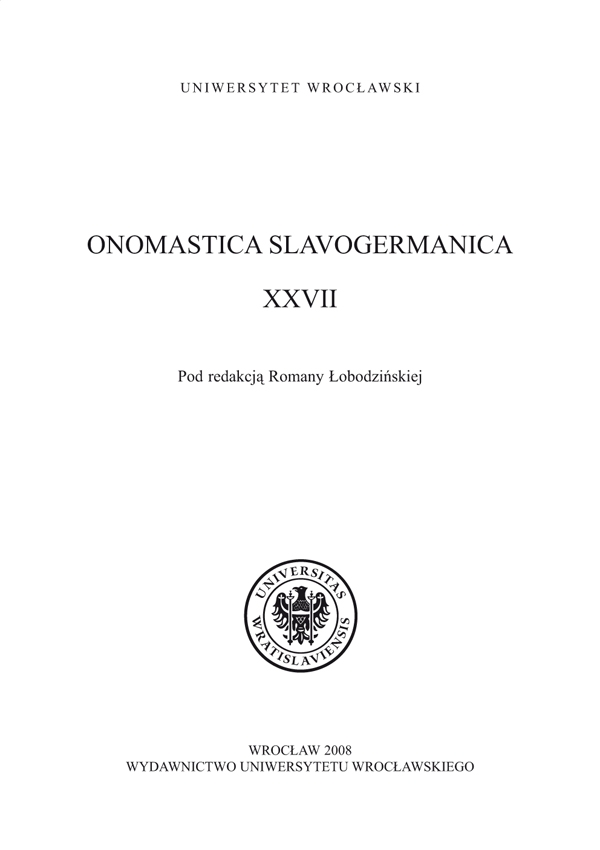Antroponimy słowiańskie w "Liber beneficiorum Domus Corone Marie prope Rugenwold 1406–1528"
Abstrakt
The Slavic anthroponyms in Liber beneficiorum Domus Corone Marie prope Rugenwold 1406–1528
The sources of this article come from Liber beneficiorum Domus Corone Marie prope Rugenwold “Book of goods of the House of Maria’s Crown near Darłowo” from the years 1406–1528, worked out by H. Lemcke 1919. In the article, in 58 entries I have gathered together anthroponyms concerning 102 persons, included in 181 records. Taking the subject matter of the article into consideration it is possible to show a few groups of analysed names:
• Slavic, with explicit etymology 20
• Slavic, with ambiguous etymology 7
• Slavic or German occasionally different 28
• about alien to the genesis, but in the form slavized polonized 3
Anthroponyms genetically Slavic most often appear in the germanized form. Also an influence of the Low German dialect is recognizable by replacing Slavic Polish suffix -ek with Low German -ke, e.g. Gostek Ghusteke, Goszek Gotzke, Janek Janeke. In many records there can be seen Pomeranian in our times: Kashubian lack of e movable, e.g. Jeszek Jeske, Raszek Raske. However, there are also remaining forms of e movable, sometimes as parallel, e.g. Kamyk Kamke, Cameke, Radek Radeke, Reczek Retzeke, Retczke, Sulek Suleke.
Presented phenomena show the process of the centuries-old meddling of the Slavic Pomeranian and German culture. It is possible to conclude from the information included in the source material that the social status of described persons was not significant for the linguistic genesis of their names.

